Table Of Content
- Avoiding Heat Exhaustion When Camping
- Hydrate Regularly
- Dress Appropriately
- Seek Shade and Rest
- Use Sun Protection
- Monitor Your Body
- Hot Weather Safety Tips for Campers
- Avoiding Heat Exhaustion When Camping
- Stay Cool in the Heat – Essential Guidelines
- Understanding the Dangers of Heat Exhaustion
- Proper Hydration Techniques in Hot Weather
- Protecting Your Skin from the Sun’s Rays
- Choosing the Right Clothing for Hot Weather
- Signs and Symptoms of Heat-Related Illnesses
- Importance of Shade and Resting in Hot Climates
- Stay Cool in the Heat: Essential Guidelines
- Avoiding Heat Exhaustion When Camping
- Hot Weather Safety Tips for Campers
- Understanding the Dangers of Heat Exhaustion
- Proper Hydration Techniques in Hot Weather
- Protecting Your Skin from the Sun’s Rays
- Choosing the Right Clothing for Hot Weather
- Importance of Shade and Resting in Hot Climates
- Understanding the Dangers of Heat Exhaustion
- Telltale Signs of Heat Exhaustion
- Hot Weather Safety Tips
- Essential Guidelines to Stay Cool
- Heat Safety Tips for Outdoor Enthusiasts
- Proper Hydration Techniques in Hot Weather
- Why Hydration Matters in the Heat
- Effective Hydration Strategies
- The Power of Proper Hydration
- Protecting Your Skin from the Sun’s Rays
- Why is Sun Protection Important?
- Essential Sun Safety Tips
- The Magic of Stay Cool in the Heat
- Choosing the Right Clothing for Hot Weather
- Lightweight and Breathable Fabrics
- Protective Accessories
- Ventilated Footwear
- Light Colors
- Recognizing the Telltale Signs of Heat-Related Illnesses
- Heat Exhaustion
- Heat Stroke
- Essential Hot Weather Safety Tips
- Importance of Listening to Your Body
- Importance of Shade and Resting in Hot Climates
- Seeking Shade: Your Cool Oasis
- The Power of Resting and Hydration
- Listening to Your Body’s Signals
- Frequently Asked Questions (FAQs)
- How can I avoid heat exhaustion while camping?
- What are some hot weather safety tips for campers?
- How can campers stay cool in extreme heat?
- What are some essential heat safety tips for camping trips?
- How can campers protect themselves from the sun’s harmful rays?
- What are the signs of heat exhaustion that campers should be aware of?
Welcome fellow outdoor enthusiasts! As we venture into the warmer months, it’s crucial to prioritize hot weather safety when engaging in camping or outdoor activities. The sun’s intense rays and sweltering heat can pose serious risks, such as heat exhaustion and heatstroke, if proper precautions are not taken. But fear not, for with the right knowledge and strategies, you can stay cool and safe in the heat.
When it comes to avoiding heat exhaustion and staying safe in hot weather, preparation is key. From wearing lightweight and breathable clothing to staying hydrated and seeking shade whenever possible, there are various ways to ensure your well-being during the hot summer days. In this blog post, we will delve into essential heat safety tips and tricks to help you beat the heat and enjoy your outdoor adventures to the fullest.
Whether you’re embarking on a camping trip, hiking expedition, or simply spending a day at the beach, knowing how to recognize the signs of heat-related illnesses and taking proactive measures can make all the difference. By arming yourself with the right information and adopting smart strategies for staying cool in the heat, you can safeguard your health and well-being while basking in the beauty of nature.
So, grab your water bottle, put on your sunscreen, and let’s explore the ultimate guide to hot weather safety. Together, we can conquer the heat and make the most of our outdoor escapades without compromising our health. Let’s dive in and discover the secrets to staying cool and safe in the scorching summer sun!
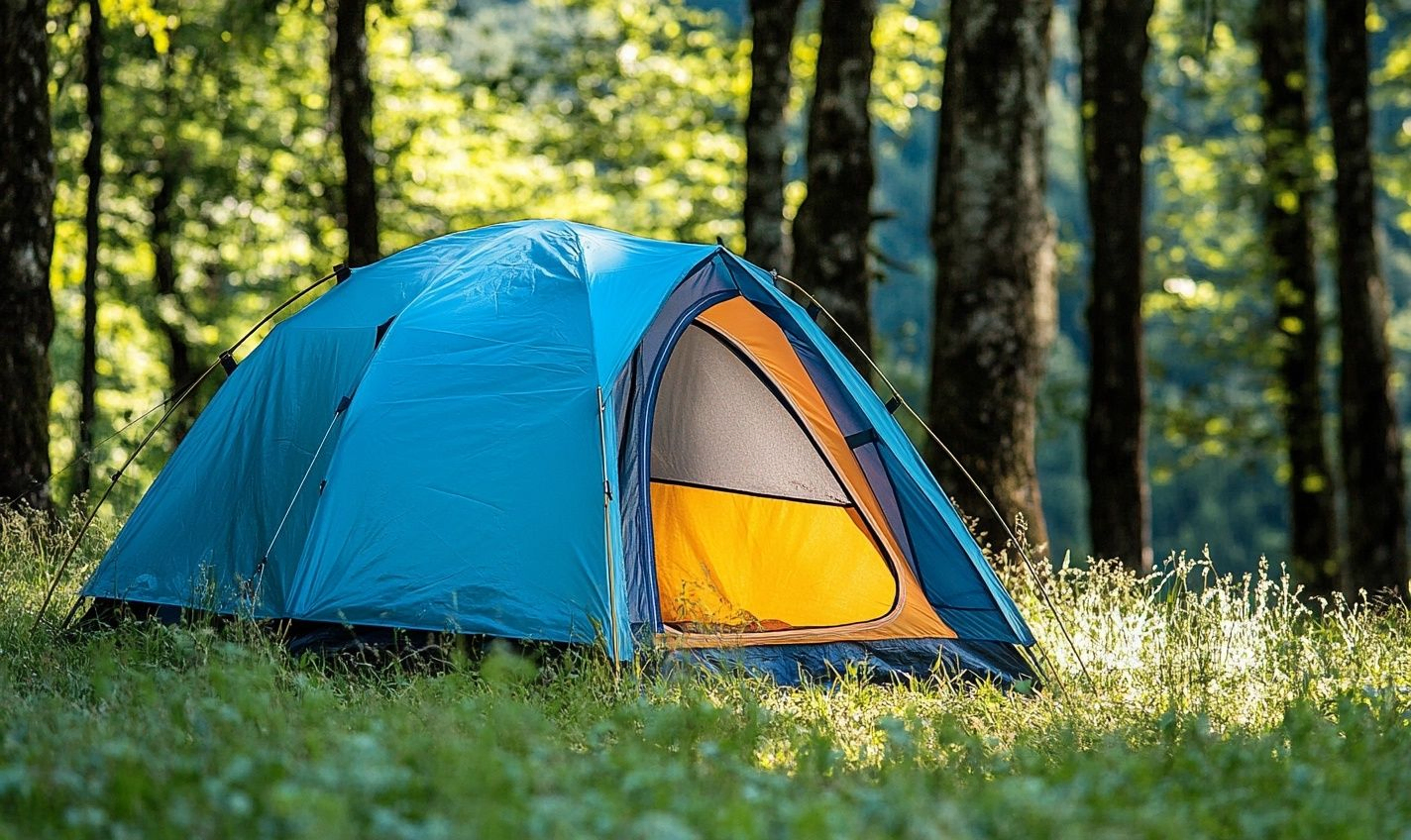
Avoiding Heat Exhaustion When Camping
When embarking on a camping trip during the scorching summer months, it’s crucial to prioritize your safety in the sweltering heat. Hot weather safety is a top concern to ensure a pleasant outdoor experience. Here are some valuable tips to help you stay cool in heat and prevent heat-related illnesses:
Hydrate Regularly
One of the most important ways to prevent heat exhaustion is to drink plenty of water throughout the day. Dehydration can sneak up on you, so keep a water bottle handy at all times.
Dress Appropriately
Wear light-colored, loose-fitting clothing to help your body stay cool and sweat evaporate more easily. Choosing the right clothing for hot weather can make a significant difference in your comfort levels.
Seek Shade and Rest
Take breaks in shaded areas and avoid direct sunlight during the hottest parts of the day. Resting periodically allows your body to recuperate and prevents overheating.
Use Sun Protection
Apply sunscreen generously to protect your skin from harmful UV rays. Additionally, wear a hat and sunglasses for added protection from the sun’s rays to prevent sunburn and heat stress.
Monitor Your Body
Be mindful of signs and symptoms of heat-related illnesses such as dizziness, nausea, headache, or excessive sweating. If you experience any of these, take immediate action to cool down.
By following these simple yet effective guidelines, you can enjoy your camping adventures without the worry of succumbing to heat exhaustion. Remember, your safety always comes first when braving the summer heat in the great outdoors!
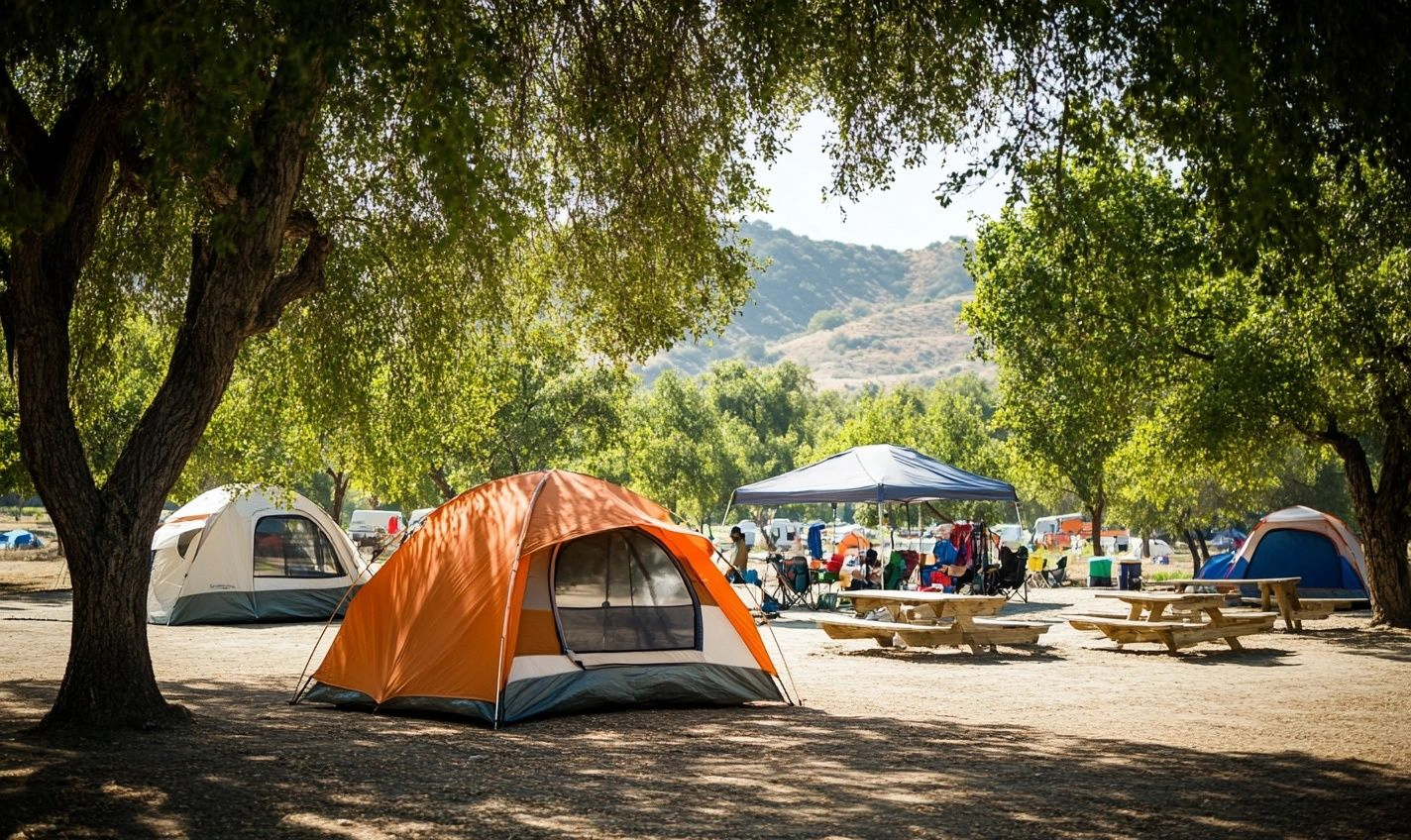
Hot Weather Safety Tips for Campers
When the sun is blazing overhead and the temperature is skyrocketing, it’s crucial to ensure your camping trip remains safe and enjoyable. Follow these hot weather safety tips to avoid heat-related illnesses and stay cool in the heat.
Avoiding Heat Exhaustion When Camping
Heat exhaustion can sneak up on you, causing symptoms such as dizziness, nausea, and fatigue. But with proper preparation and awareness, you can prevent it from ruining your outdoor adventure.
Stay Cool in the Heat – Essential Guidelines
- Seek shade during the hottest parts of the day
- Wear lightweight, light-colored clothing
- Use a wet bandana around your neck to stay cool
Understanding the Dangers of Heat Exhaustion
Heat exhaustion is no joke – it can lead to more severe conditions like heatstroke if not addressed promptly. Recognize the signs and act accordingly to protect yourself and your fellow campers.
Proper Hydration Techniques in Hot Weather
- Drink plenty of water throughout the day
- Avoid sugary or caffeinated beverages
- Consider electrolyte supplements for added hydration
Protecting Your Skin from the Sun’s Rays
Don’t forget to apply sunscreen regularly, wear a hat, and seek shade to shield yourself from harmful UV rays. Your skin will thank you for the extra care!
Choosing the Right Clothing for Hot Weather
Opt for loose-fitting, breathable fabrics that allow air circulation and help regulate your body temperature. Stay away from heavy fabrics that trap heat.
Signs and Symptoms of Heat-Related Illnesses
Be aware of symptoms such as headache, rapid heartbeat, and muscle cramps – they could indicate a heat-related illness. Stay vigilant and take action if needed.
Importance of Shade and Resting in Hot Climates
Give your body a break from the sun by resting in shaded areas. Take frequent breaks to cool down and prevent overheating during your outdoor activities.
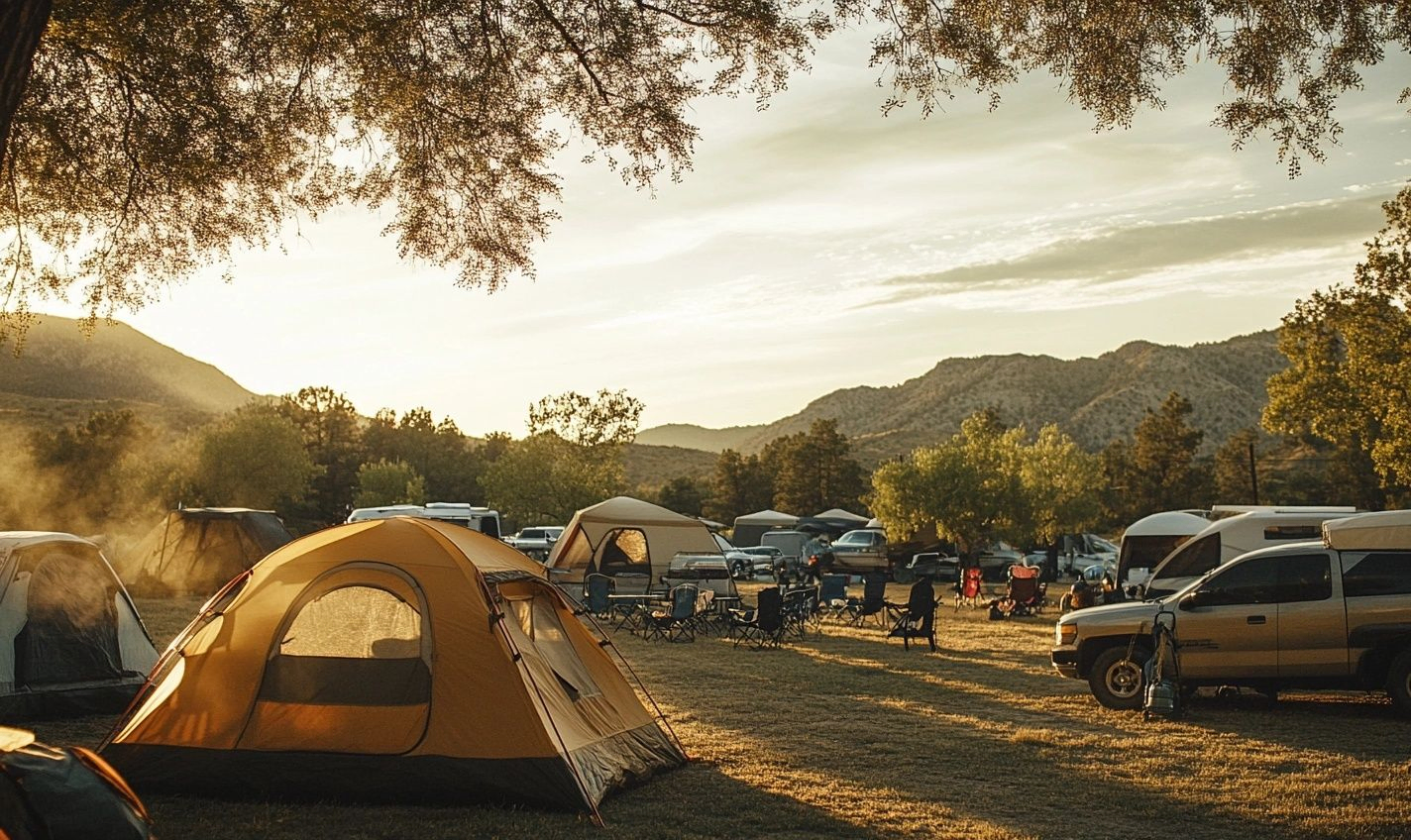
Stay Cool in the Heat: Essential Guidelines
When the sun beats down and temperatures soar, it’s crucial to know how to keep yourself safe and comfortable during your camping adventures. With proper preparation and a few simple strategies, you can beat the heat and enjoy your outdoor experience to the fullest.
Avoiding Heat Exhaustion When Camping
Heat exhaustion can sneak up on you, especially when you’re out in the elements. Symptoms like dizziness, nausea, and headaches are clear signs that you need to cool down immediately.
Hot Weather Safety Tips for Campers
Staying safe in hot weather goes beyond just drinking water. Protect yourself by wearing sunscreen, lightweight clothing, and seeking shade when possible to prevent heat-related illnesses.
Understanding the Dangers of Heat Exhaustion
Heat exhaustion is no joke and can quickly escalate into heatstroke if not properly addressed. Know the signs and symptoms to keep yourself and your fellow campers safe.
Proper Hydration Techniques in Hot Weather
Maintaining proper hydration levels is key to staying cool in the heat. Drink water frequently and avoid sugary or caffeinated beverages that can dehydrate you.
Protecting Your Skin from the Sun’s Rays
Don’t forget to protect your skin from harmful UV rays by applying sunscreen regularly. Sunburn can not only be painful but also contribute to heat stress.
Choosing the Right Clothing for Hot Weather
Opt for loose, light-colored clothing that allows your skin to breathe and helps wick away sweat. Avoid dark colors that absorb heat and make you feel hotter.
Importance of Shade and Resting in Hot Climates
Take breaks in shaded areas to cool down and give your body the rest it needs to combat the heat. Don’t push yourself too hard in extreme temperatures.
Remember, staying cool in the heat is all about being prepared, staying hydrated, and listening to your body. By following these essential guidelines, you can enjoy your camping experience safely and comfortably, even in the hottest of weather!
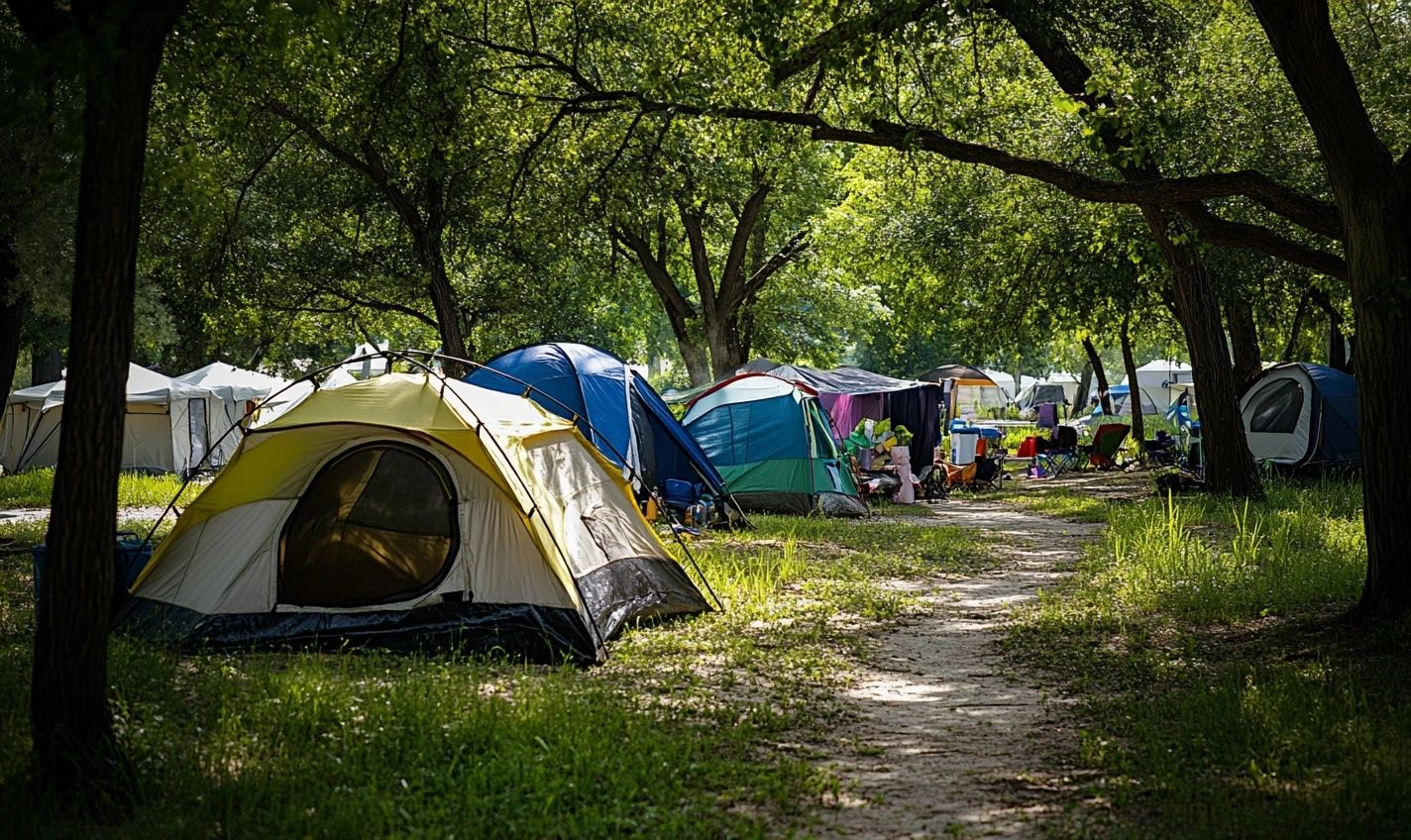
Understanding the Dangers of Heat Exhaustion
When you’re out camping or hiking in the sweltering heat, the risk of heat exhaustion is real. This is a serious condition that occurs when your body overheats, often as a result of prolonged exposure to high temperatures and inadequate hydration.
Telltale Signs of Heat Exhaustion:
- Profuse sweating
- Weakness or fatigue
- Dizziness or lightheadedness
- Nausea and vomiting
- Rapid heartbeat
Ignoring these symptoms can lead to heatstroke, a life-threatening emergency that requires immediate medical attention. So, what can you do to prevent heat exhaustion and stay safe in hot weather?
Hot Weather Safety Tips:
- Stay hydrated by drinking plenty of water throughout the day.
- Avoid strenuous activities during the hottest parts of the day.
- Wear lightweight and light-colored clothing to reflect sunlight.
In the scorching heat, your body can feel like an overheated engine, desperate for a cooldown. To stay cool in the heat, it’s crucial to find ways to regulate your body temperature efficiently.
Essential Guidelines to Stay Cool:
- Seek shade whenever possible to escape the direct sun.
- Use a damp cloth or cooling towel on your neck and wrists.
- Take regular breaks in shaded areas to prevent overheating.
Think of your body as a delicate flower that needs constant care and attention. Just like a plant wilts without water and sunlight, our bodies can suffer when exposed to extreme heat without proper precautions.
Heat Safety Tips for Outdoor Enthusiasts:
- Listen to your body’s cues and take breaks when needed.
- Avoid caffeine and alcohol, as they can contribute to dehydration.
- Know the signs of heat-related illnesses and act promptly if you notice any symptoms.
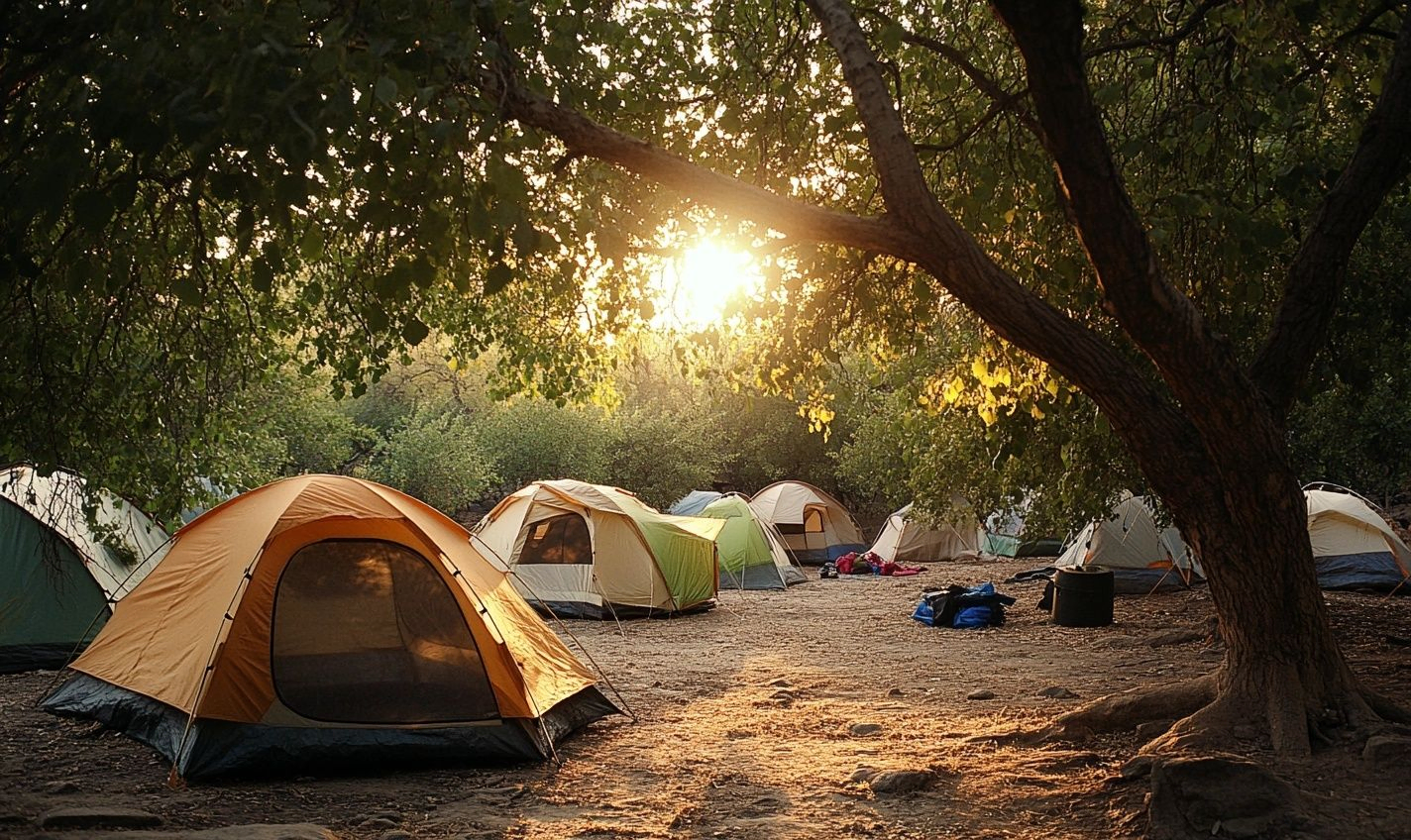
Proper Hydration Techniques in Hot Weather
When the sun beats down relentlessly and the mercury rises, staying properly hydrated becomes more critical than ever. Proper hydration is not only about drinking water; it’s a vital component of your safety when camping in hot weather. Let’s explore some effective techniques for staying hydrated in scorching conditions.
Why Hydration Matters in the Heat
Did you know that our bodies are made up of around 60% water? And when we’re exposed to high temperatures, we lose this essential fluid through sweat and evaporation, leading to dehydration. Dehydration can result in heat exhaustion and even heatstroke, which are serious conditions that can be life-threatening.
Effective Hydration Strategies
Here are some practical tips to help you stay adequately hydrated while camping in hot weather:
- Drink water regularly throughout the day, even if you don’t feel thirsty.
- Carry a reusable water bottle and make a conscious effort to sip water consistently.
- Avoid sugary drinks and excessive caffeine as they can dehydrate your body.
- Consume hydrating foods like fruits and vegetables to supplement your water intake.
- Add electrolyte tablets to your water to replenish salts lost through sweating.
The Power of Proper Hydration
Imagine water as your body’s best friend during a scorching heatwave. Just like a shield against the sun’s relentless rays, staying hydrated acts as your armor, protecting you from the dangers of dehydration and heat-related illnesses.
So, the next time you’re out camping under the blazing sun, remember that staying hydrated isn’t just a choice—it’s a lifeline in hot weather.
Protecting Your Skin from the Sun’s Rays
As you embark on your camping adventure, don’t forget the importance of protecting your skin from the sun’s rays. While enjoying the great outdoors, it’s crucial to safeguard yourself from harmful UV radiation to prevent sunburns and long-term skin damage.
Why is Sun Protection Important?
Have you ever felt your skin burning after a day out in the sun? That’s the sun’s harmful UV rays damaging your skin cells. In the long run, this can lead to premature aging, wrinkles, and even skin cancer. But fear not, with some simple steps, you can shield your skin and stay safe under the sun.
Essential Sun Safety Tips:
- Apply sunscreen with at least SPF 30 before heading out.
- Reapply sunscreen every two hours, especially after swimming or sweating.
- Wear protective clothing like long sleeves, pants, and wide-brimmed hats.
- Seek shade during peak sun hours, typically between 10 am and 4 pm.
- Don’t forget your sunglasses with UV protection to shield your eyes.
The Magic of Stay Cool in the Heat
Just like seeking shade for your skin, it’s vital to stay cool in the heat. Hydrate regularly, wear light-colored and loose clothing, and avoid strenuous activities during the hottest parts of the day. Your body will thank you for it!
Choosing the Right Clothing for Hot Weather
When the sun beats down during your camping trip, the key to staying safe and comfortable lies in your choice of clothing. Wearing the right attire can make a world of difference in avoiding heat exhaustion and staying cool in high temperatures. Here are some essential guidelines to keep in mind:
Lightweight and Breathable Fabrics
Opt for materials like cotton or moisture-wicking fabrics that allow your skin to breathe, promoting airflow and reducing sweat buildup.
Pack loose-fitting garments to prevent overheating and enable moisture evaporation.
Protective Accessories
Wear a wide-brimmed hat to shield your face and neck from direct sunlight, reducing the risk of sunburn and heat-related illnesses.
Don’t forget sunglasses to protect your eyes from harmful UV rays, ensuring clear vision and added comfort.
Ventilated Footwear
Choose open-toe sandals or lightweight hiking shoes with breathable mesh to keep your feet cool and prevent blisters or discomfort caused by heat retention.
- Avoid heavy boots or tight-fitting shoes that can trap heat and moisture, leading to sweaty and uncomfortable feet.
Light Colors
Opt for light-colored clothing that reflects sunlight instead of absorbing heat, helping you to stay cooler and more comfortable throughout the day.
Dark colors tend to attract heat and can make you feel warmer, increasing the risk of dehydration and heat exhaustion.
Remember that your clothing choices play a significant role in your hot weather safety while camping. By selecting the right attire, you can stay cool in the heat and enjoy your outdoor adventures to the fullest.
Recognizing the Telltale Signs of Heat-Related Illnesses
When you’re out camping in the blistering heat, it’s vital to be aware of the warning signs that your body may be struggling to cope with the high temperatures. Knowing how to spot the symptoms of heat-related illnesses can mean the difference between an enjoyable camping trip and a dangerous situation.
Heat Exhaustion:
Heat exhaustion is a common condition that occurs when your body overheats, typically due to dehydration and prolonged exposure to high temperatures. Look out for the following symptoms:
– Excessive sweating
– Fatigue and weakness
– Nausea and dizziness
– Headache and muscle cramps
Heat Stroke:
Heat stroke is a severe form of heat-related illness that can be life-threatening if not treated promptly. The symptoms of heat stroke include:
– High body temperature (above 103°F)
– Rapid heartbeat and shallow breathing
– Confusion or disorientation
– Loss of consciousness
But how can you stay safe and avoid these dangerous conditions while camping in hot weather?
Essential Hot Weather Safety Tips:
1. Stay Hydrated: Drink plenty of water throughout the day to prevent dehydration.
2. Seek Shade: Take frequent breaks in shaded areas to cool down.
3. Wear Lightweight Clothing: Opt for light-colored, loose-fitting clothes that allow your skin to breathe.
4. Use Sunscreen: Protect your skin from harmful UV rays by applying sunscreen regularly.
Importance of Listening to Your Body:
Remember, your body is like a finely tuned machine, and it will give you signals when something isn’t right. Don’t ignore these warning signs; instead, listen to your body and take action to prevent heat-related illnesses.
Importance of Shade and Resting in Hot Climates
As the blazing sun beats down on you during a camping trip, finding shade becomes your best friend. Avoiding heat exhaustion in scorching temperatures is crucial for a safe and enjoyable outdoor experience. Let’s dive into why seeking shade and taking breaks are vital for hot weather safety.
Seeking Shade: Your Cool Oasis
When the sun is relentless, shade offers a reprieve from the intense heat, allowing your body to cool down naturally. It’s like finding a cool oasis in a desert of heat.
– Shaded areas help lower your body temperature and reduce the risk of dehydration and heat-related illnesses.
– Set up your campsite under trees or use a canopy to create your shaded sanctuary.
The Power of Resting and Hydration
Resting in the shade not only keeps you cool but also allows your body to recover from the heat stress. It’s like giving your body a chance to recharge its batteries.
– Regular breaks in shaded areas prevent overheating and replenish your energy levels.
– Stay hydrated with plenty of water to help your body regulate its temperature effectively.
Listening to Your Body’s Signals
When your body starts to give you cues of heat exhaustion, pay attention. It’s like your body’s way of saying, “Hey, I need a break!”.
– Symptoms like dizziness, nausea, and excessive sweating indicate it’s time to seek shade and rest.
– Take action immediately to avoid further complications and ensure your well-being.
In the scorching heat, shade and resting are not just options but necessities for maintaining your heat safety. So, next time the sun bears down on you during a camping adventure, remember the cooling power of shade and the rejuvenating effects of taking a break. Your body will thank you for it.
Conclusion
As we wrap up our conversation on hot weather safety and tips for staying cool, it’s crucial to remember that preventing heat exhaustion is vital for our overall health and well-being during the scorching summer months. By following the simple yet effective strategies we’ve discussed, you can enjoy all the outdoor adventures without putting yourself at risk.
Always stay hydrated, wear light and breathable clothing, seek shade or use umbrellas when possible, and take regular breaks in cooler areas. Prioritizing your health and comfort should always come first, especially when you are out in the sun for extended periods.
Remember to be mindful of the signs of heat exhaustion, such as excessive sweating, dizziness, nausea, and fatigue. If you or someone in your party experiences these symptoms, it’s essential to take immediate action by moving to a cooler place, hydrating, and seeking medical attention if needed.
By incorporating these hot weather safety tips into your routine and staying vigilant about your body’s signals, you can ensure a fun and safe outdoor experience even in the hottest of temperatures. Stay cool, stay safe, and enjoy all the summer has to offer!
Frequently Asked Questions (FAQs)
How can I avoid heat exhaustion while camping?
To avoid heat exhaustion while camping, make sure to stay hydrated, wear lightweight and breathable clothing, take frequent breaks in the shade, and avoid strenuous activities during the hottest parts of the day.
What are some hot weather safety tips for campers?
Some hot weather safety tips for campers include drinking plenty of water, using sunscreen, wearing a hat and sunglasses, and setting up camp in shaded areas whenever possible.
How can campers stay cool in extreme heat?
Campers can stay cool in extreme heat by utilizing cooling towels, taking cold showers, using portable fans, and setting up a misting system at their campsite.
What are some essential heat safety tips for camping trips?
Some essential heat safety tips for camping trips include knowing the signs of heat-related illnesses, having a first aid kit with cooling gel packs, and monitoring your body for any signs of overheating.
How can campers protect themselves from the sun’s harmful rays?
Campers can protect themselves from the sun’s harmful rays by wearing sunscreen with a high SPF, seeking shade during peak sun hours, and wearing UV-protective clothing.
What are the signs of heat exhaustion that campers should be aware of?
Signs of heat exhaustion that campers should be aware of include profuse sweating, weakness, headache, nausea, dizziness, and muscle cramps.

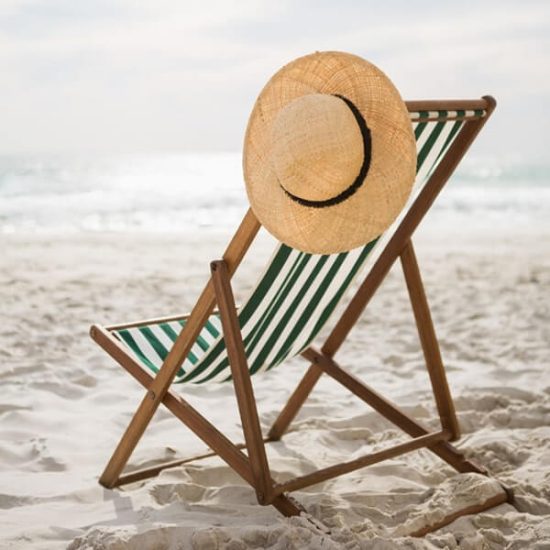

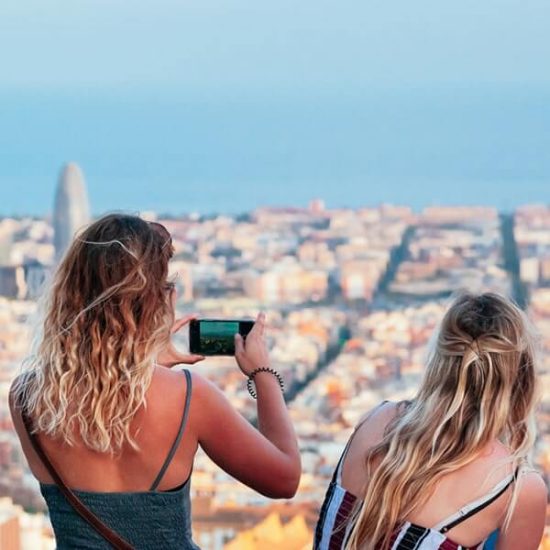
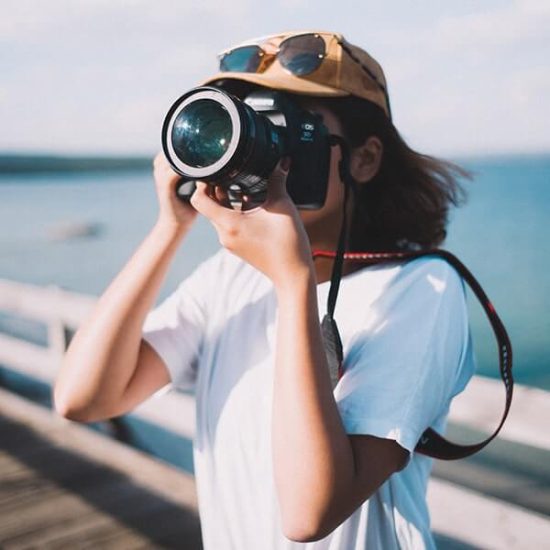
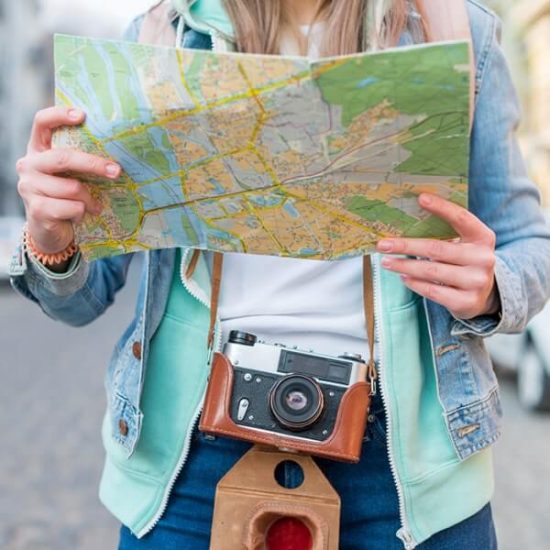
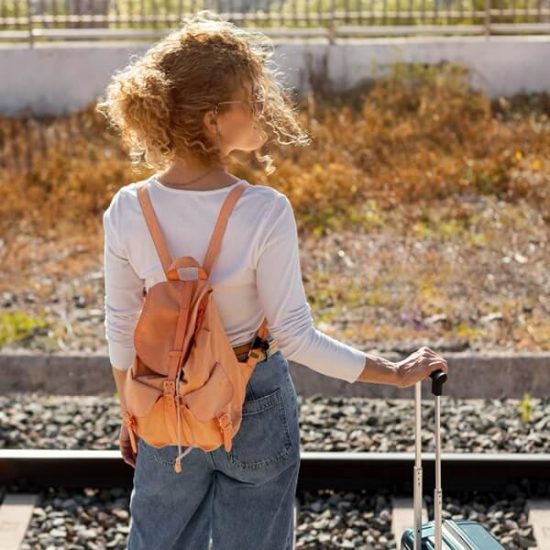
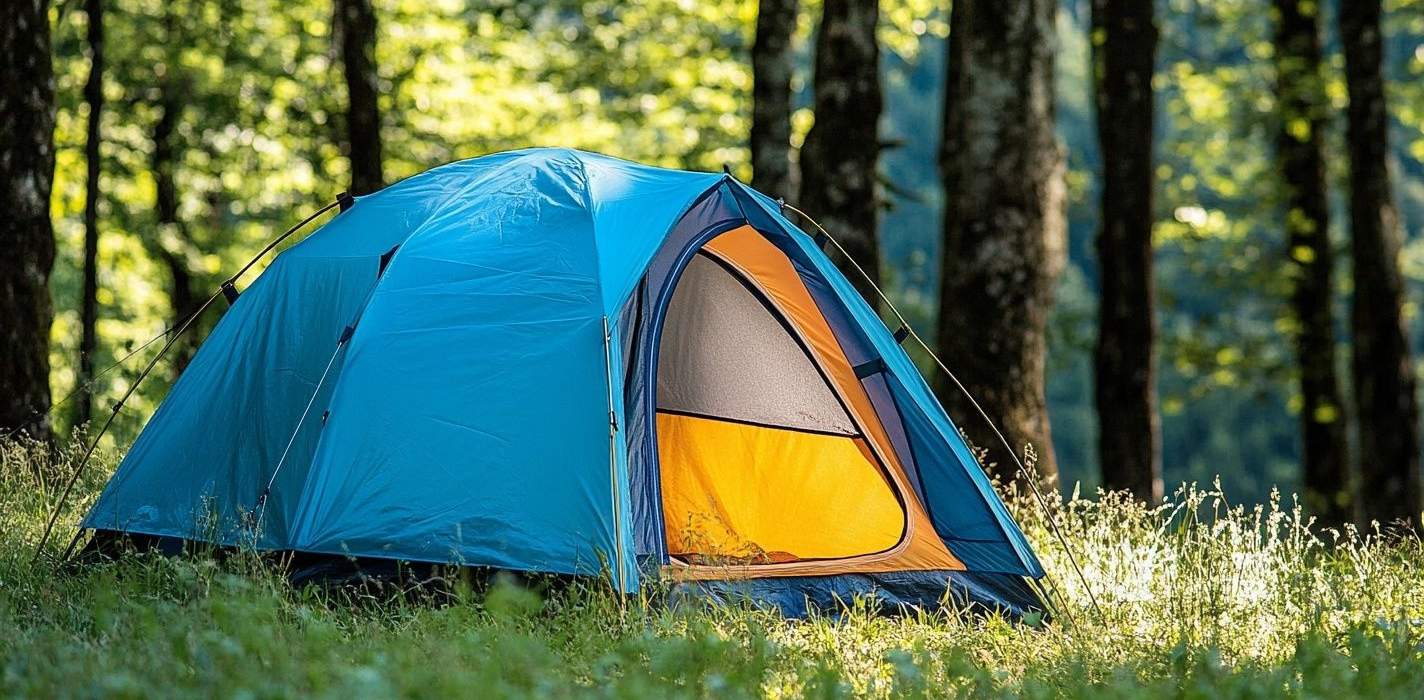
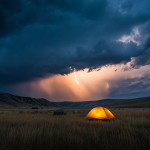
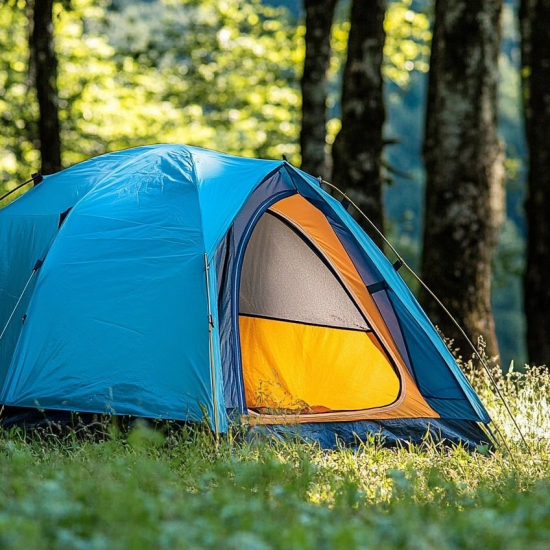
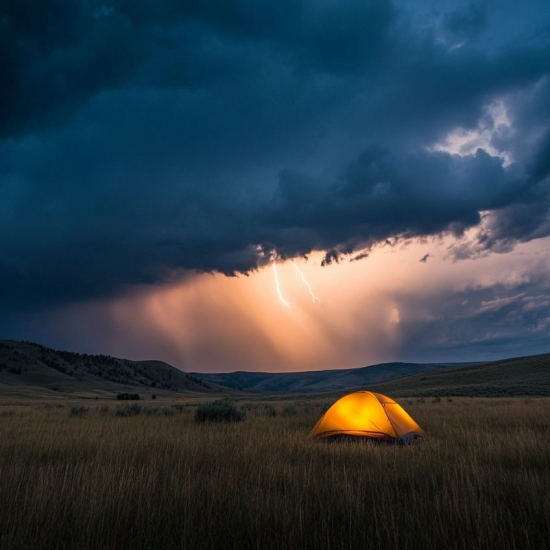
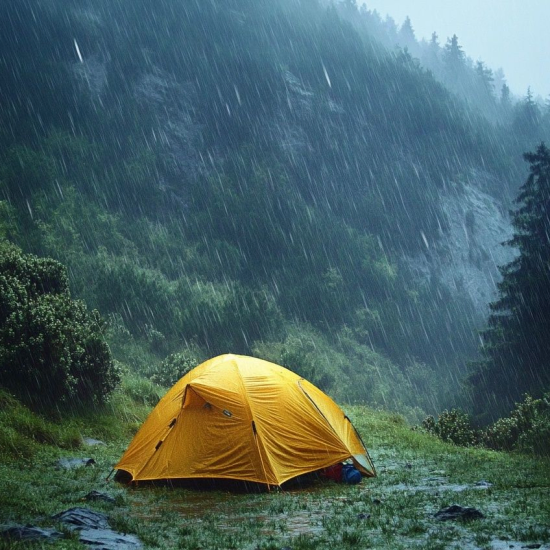
No Comment! Be the first one.